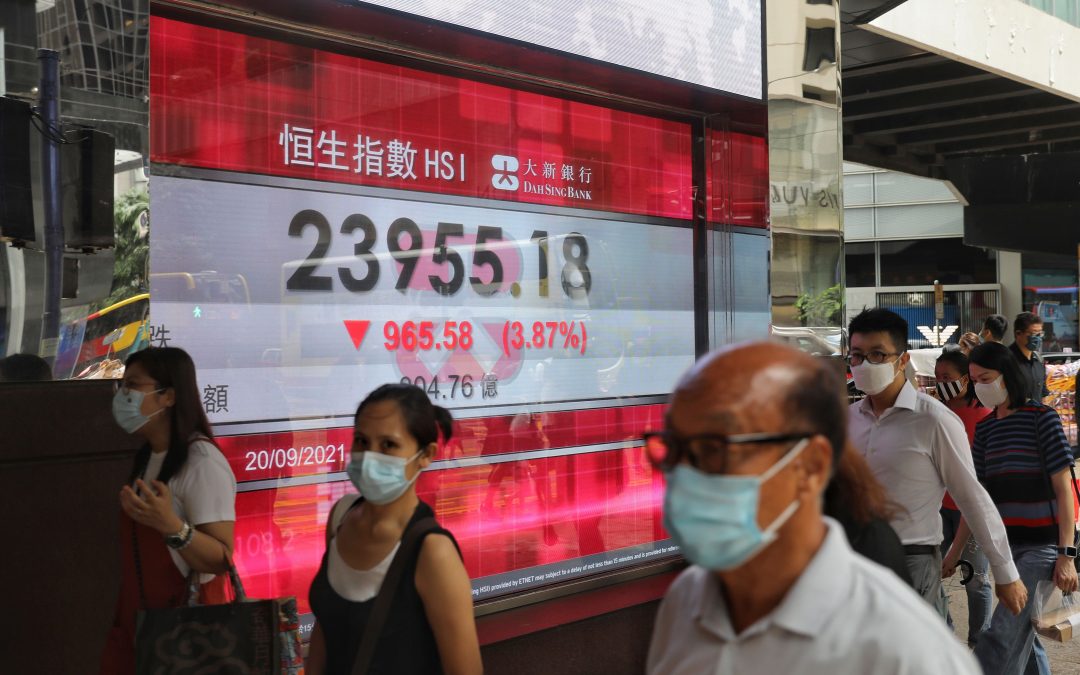Following China’s surprise move to make crypto mining and crypto trading services explicitly illegal within its borders, there is still much we don’t know about the real impacts. But, of course, that’s not stopping plenty of commentators from peddling simplified reactions. Here are three common ones – and why they, at best, need fleshing out.
‘China’s ban will destroy crypto markets’
We’ll start with the easy one – what you might call “the mainstream media take.” BTC, ETH and many other cryptos dropped dramatically when news of China’s ban hit, some plunging nearly 9% in just four hours. Clearly, somebody thought the sky was falling, expecting millions of Chinese investors to immediately exit the market and destroy everyone’s bags in the process.
But prices have more or less recovered just a few days later. This doesn’t mean there’s no serious broader impact (see below), just that the crypto asset market was, in some sense, ready for the China shock. China’s incremental moves against crypto, particularly the ejection of miners earlier this summer, have served as ample warning that something more severe could arrive.
That said, remember that the market today isn’t an airtight arbiter of long-term truth. With cash and liquidity extremely high in the broader market, a dip in nearly any asset triggered by an outside shock is going to attract a certain amount of cash from those who see a buying opportunity, even a very short-term one. If you bought the Friday dip, you’ve already made a little over 3%, or over 300% APR returns; You get to keep that money no matter what you actually think about crypto’s future without China.
‘China wants to crush crypto because it hates the smell of freedom’
OK, look, I know this is a very tempting way to think, especially for crypto die-hards. China truly is a repressive society, and the idea that the crypto crackdown is act one of some sort of “V for Vendetta” situation is gratifying: Every crypto activist wants to be a heroic, crusading anti-authoritarian. It is also objectively true that uncensorable cryptocurrencies are threats to the Chinese Communist Party’s authority and goals, particularly when it comes to capital controls.
But the current moves against crypto are part of a much larger moment of reckoning for financial experimentation and risk in China. It has come at the same time as a series of moves against fintech and even traditional banking and investment firms, making it clear that crypto isn’t some singular threat to Xi Jinping getting a good night’s rest.
Recently, for example, China announced it would be “parachuting” financial oversight officials into China’s 25 largest financial institutions to review their practices. The planned initial public stock offering of fintech Ant Group was famously kneecapped by the Party. China also recently implemented a “three red lines” policy to reduce the debt leverage of real estate developers – a policy which has brought down the massive developer Evergrande.
In that context, what’s happening to Chinese crypto exchanges is barely a footnote. In fact, it’s arguably misleading to call what’s happening a “crypto crackdown” at all: It is by all appearances an attempt to curtail leverage risk across the financial system, and crypto is just a small part of that.
‘China’s ban won’t impact crypto at all’
While token markets have digested the bad news without much trouble, that doesn’t mean there isn’t a downside to all this. It will just be a long time coming, and hard to see.
The medium-term impacts, for a start, are very real. For example, Huobi, a massive domestic exchange until recently, appears poised to cut off mainland users. Sources including former BTCC CEO Bobby Lee are also telling CoinDesk to expect an end to over-the-counter trading sooner rather than later. Right now, users of those OTC desks seem to be cashing in their chips: In the immediate aftermath of the announced clampdown, the stablecoin tether temporarily broke its peg against the RMB, suggesting heavy outflows.
In other words, it seems likely that many Chinese investors, and especially traders, will leave the market. Crypto continues to grow everywhere else, hence the steadied market, but that’s still a lot of volume to offset.
Some of that volume will move to decentralized exchanges. Interest in that technology in Chinese crypto circles has surged in response to the crackdown, Matthew Graham, China-based cofounder of blockchain VC firm Sino Global Capital, observed on Twitter. That would be in line with what some China watchers argue is the CCP’s real goal here – not to crush crypto entirely but to push it to the margins where only a few dare tread.
And that speaks to the real long-term concern here. Over time, the clear pressure from Chinese leadership to move away from decentralized blockchain tech will have a determining influence over how young people in China and Hong Kong spend their time and attention. Among the more draconian measures of the new Chinese policy is that Chinese residents cannot work for crypto exchanges abroad, meaning there will be a much narrower career path for young Chinese people who want to do crypto professionally.
Even grassroots activity seems likely to experience a major chilling effect, because Chinese policy changes are usually read as broader signals of what the government considers socially acceptable. Sino Global’s Graham also shared over the weekend that crypto-related WeChat groups are being renamed to conceal their topic. Whatever the letter of the law, at least some Chinese people are afraid to even be caught talking about crypto. If nothing else, that means the pipeline of real individual talent and energy coming from China into the blockchain universe will slow.
That, rather than declining exchange volumes or hash power, is the real worry here.














